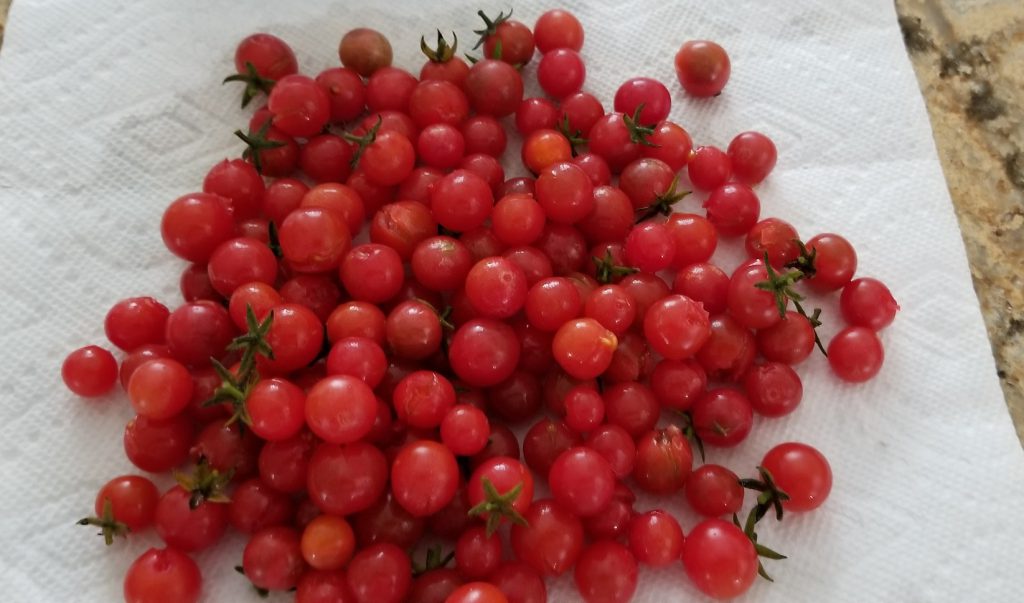For me, tomatoes are the most difficult (and expensive) vegetable to grow. I even try to discourage people from growing tomatoes in Florida. Tomatoes are susceptible to damage from a plethora of diseases and insect pests AND they require a lot of maintenance and fertilizer. However, I now have a tomato variety I can recommend – The Everglades Tomato.
The Everglades tomato (Solanum pimpinellifolium) is a different species than the traditional tomato (Solanum lycopersicum). Other names for this tomato are the wild tomato or currant tomato. The plant produces an abundance of small tomatoes (about 1/2 inch diameter) with thin skin. Unlike most tomatoes, Everglades tomatoes keep producing throughout the heat of summer. They are even tolerant of brackish water and salt winds.
Everglades tomatoes should be cared for like any other indeterminate (vining type) tomato. Like most gardeners, I like to plant tomatoes a little deeper (two inches or so) than they were planted in the tray/pot. This allows for more adventitious roots to develop from the buried portions of the stems. I also like to trellis these plants with tall stakes and twine or some other support to improve air circulation. However, I have read that Everglades tomatoes grow just fine rambling on the ground. Make sure to give them a little more space than other tomatoes regardless if you stake them or not. Fertilize and irrigate just the same as you would for other tomatoes.

Of course, just like any plant, Everglades tomatoes aren’t perfect. Their small size makes harvesting a little more labor intensive and their thin skin is easily torn. But I’m able to look past these faults because of their excellent flavor. I’ve also noticed Everglades tomatoes are not immune to caterpillar/moth pests. Fortunately the caterpillars only seem to feed on the leaves, because the tomatoes are so small.
Whether you’re a chef or just want a sweet snack, you should give Everglades tomatoes a try. Just search the internet for seed sources or ask a friend for a cutting.
- Is a Limequat a Lime or a Kumquat? - December 26, 2025
- Gardening in the Panhandle LIVE! Program Summary: Pests of Florida Lawns and Landscape Plants - May 28, 2025
- Fun Facts About Ferns - April 30, 2025
